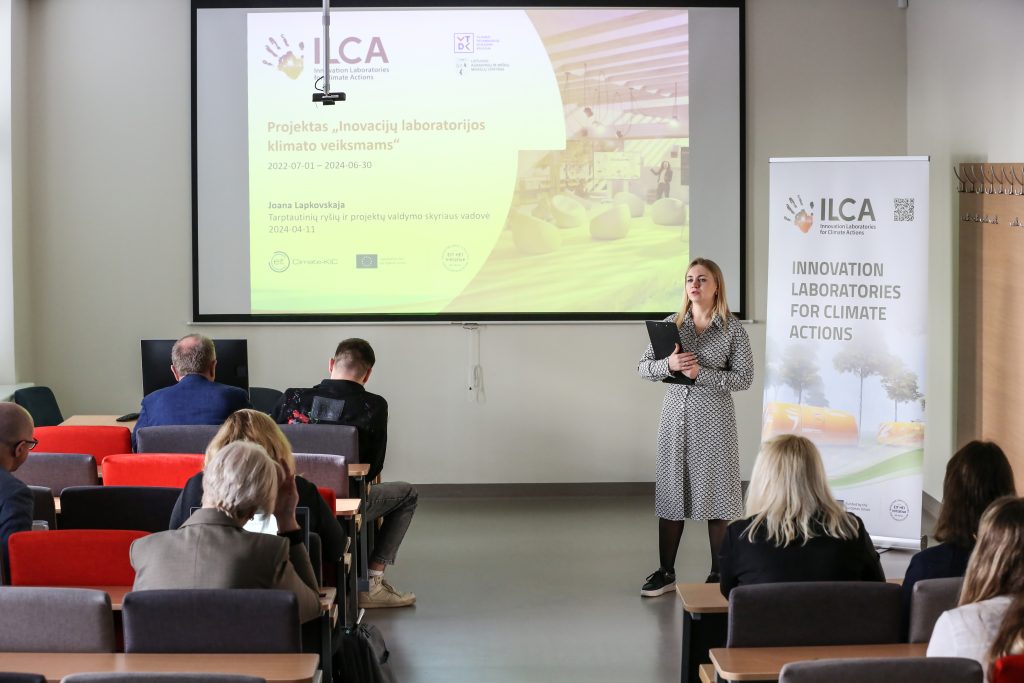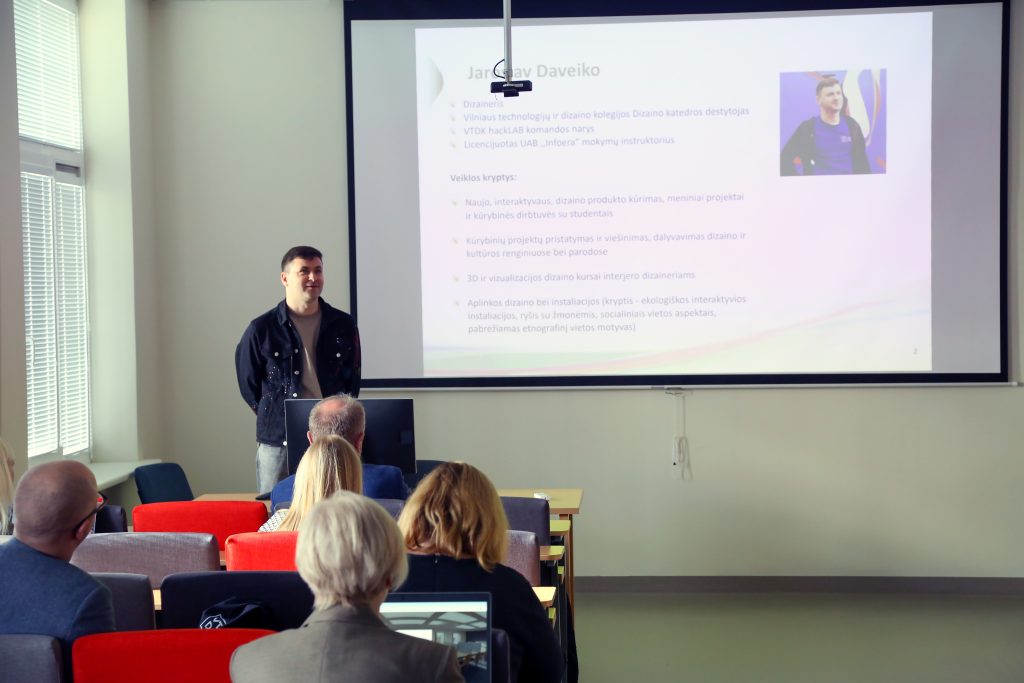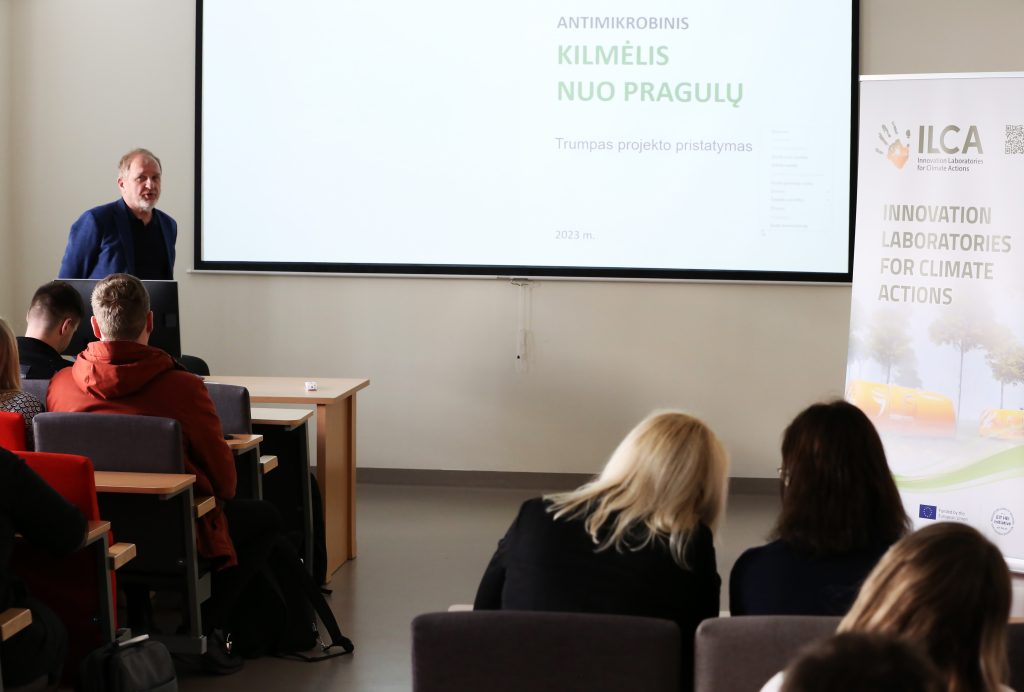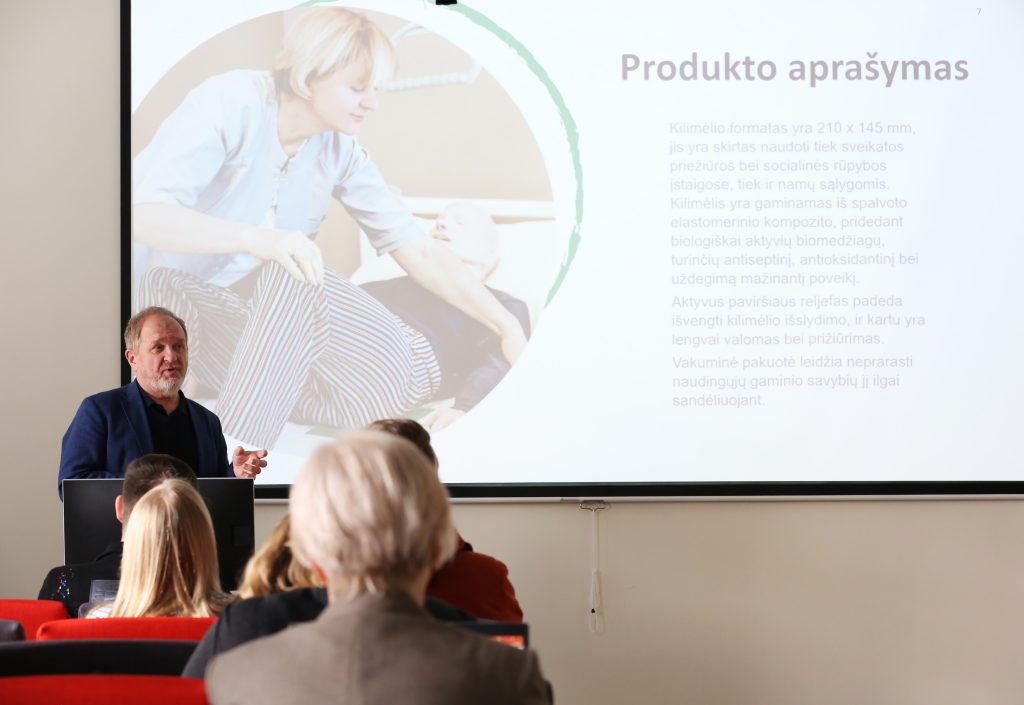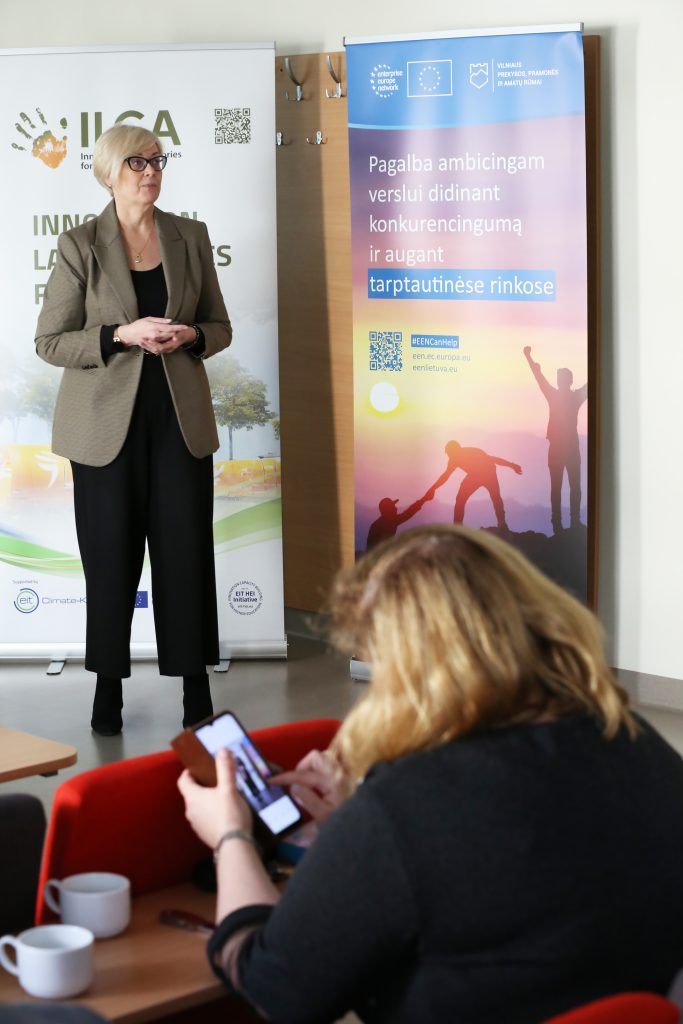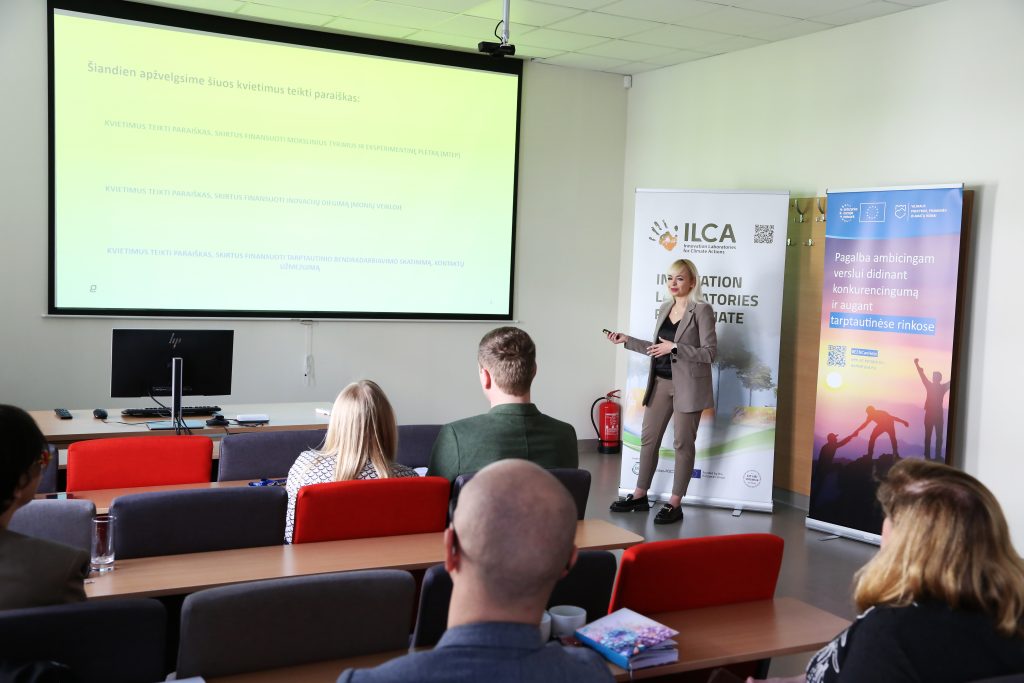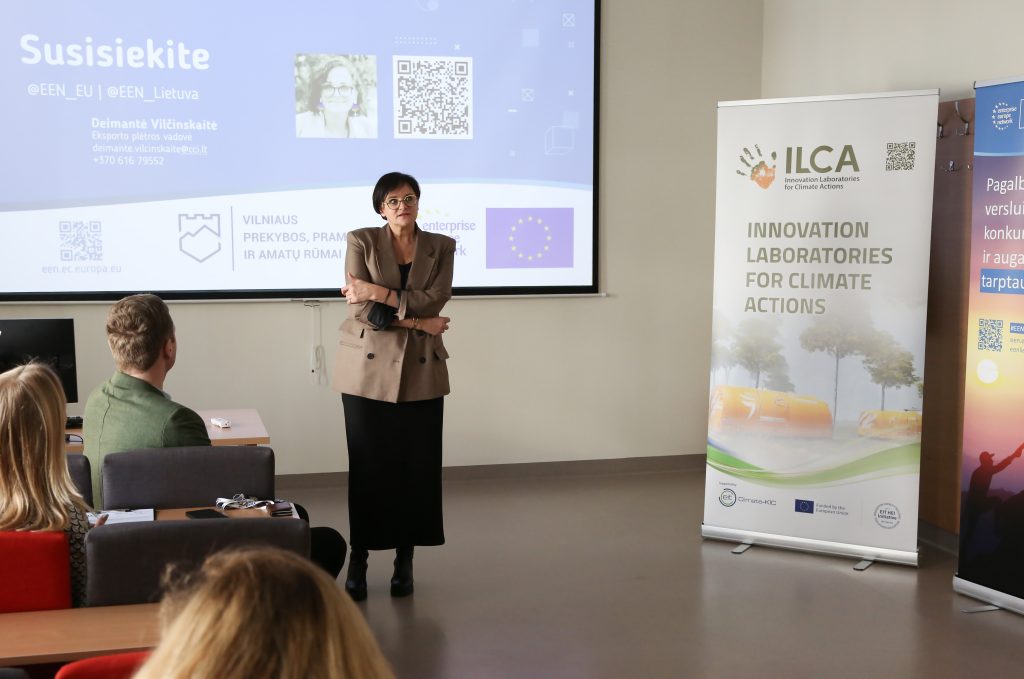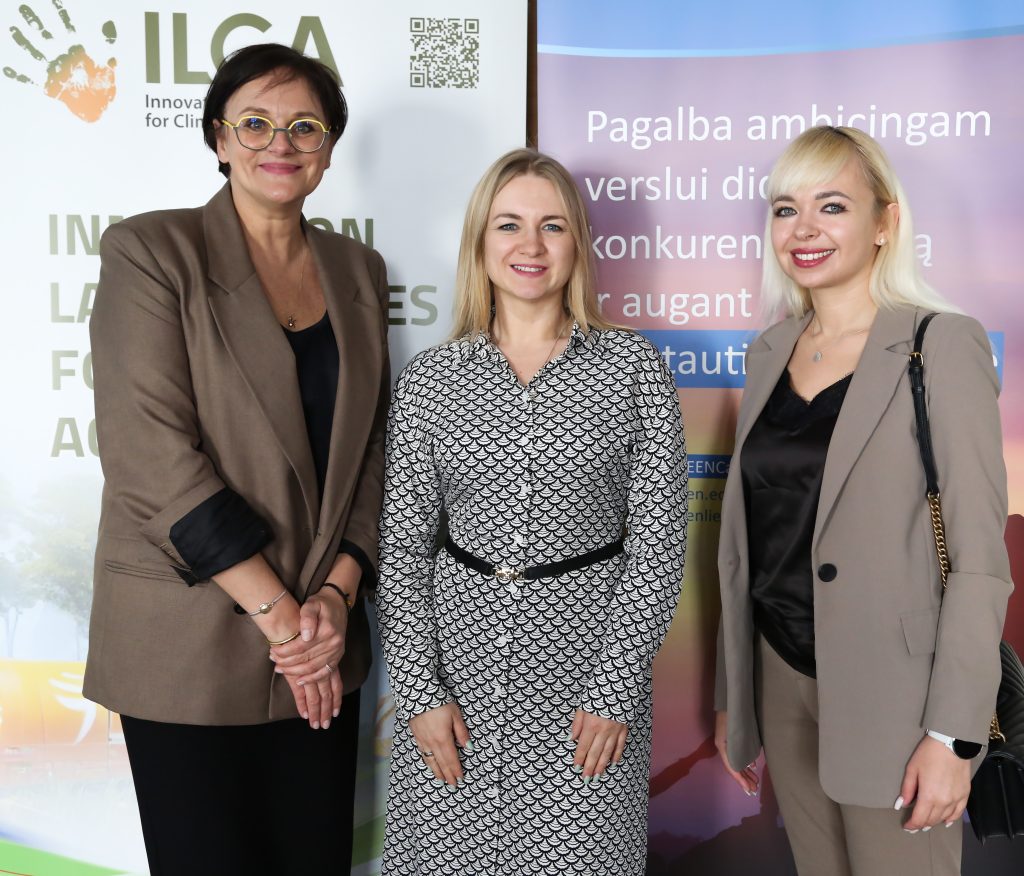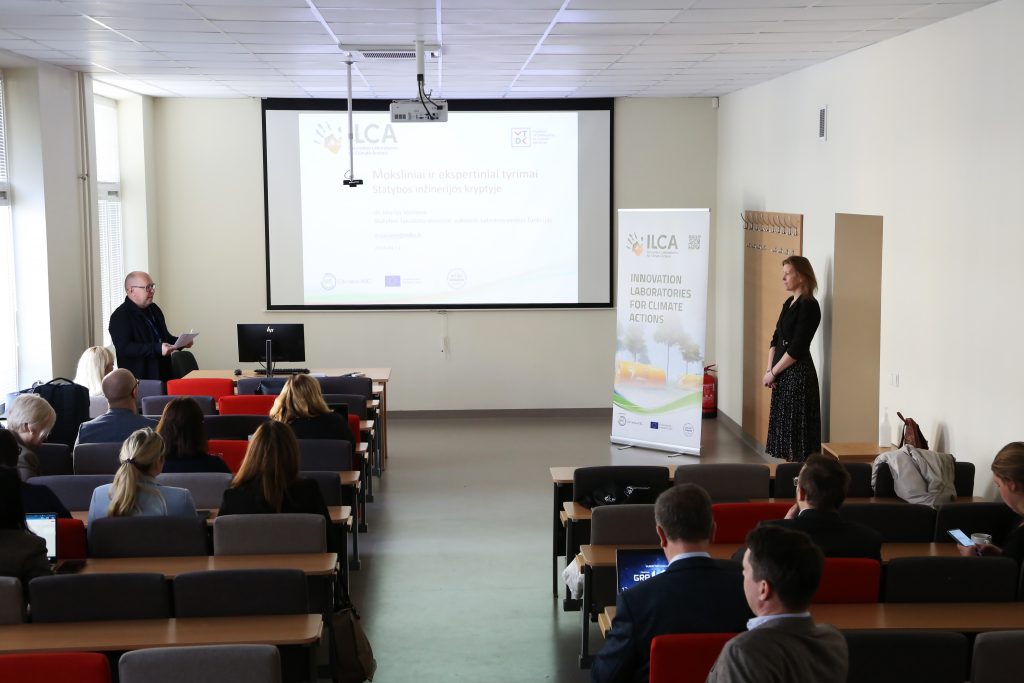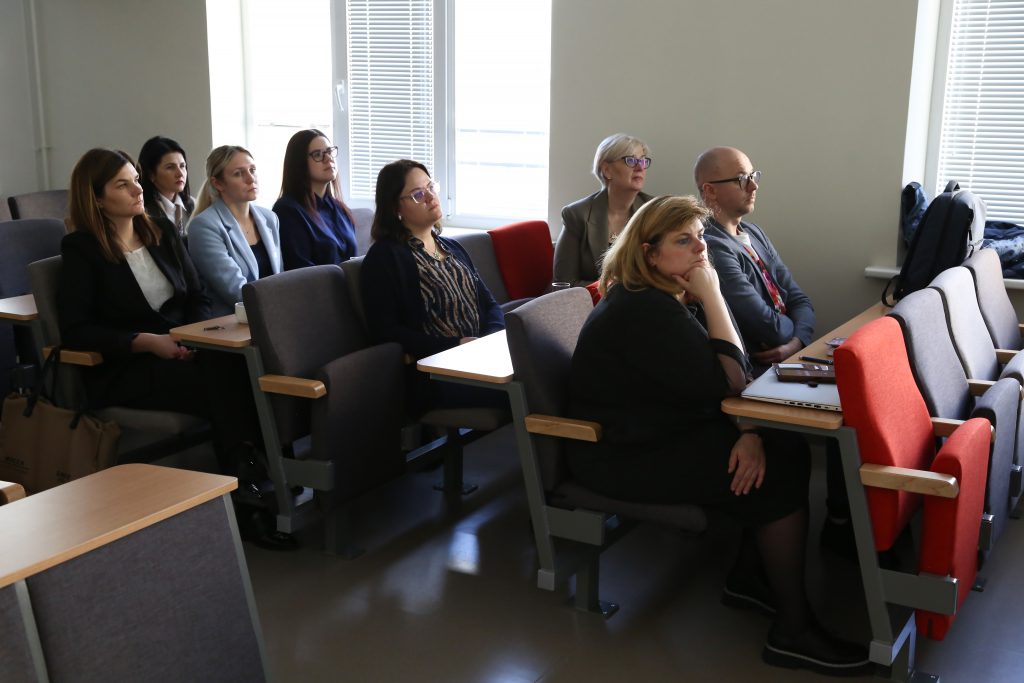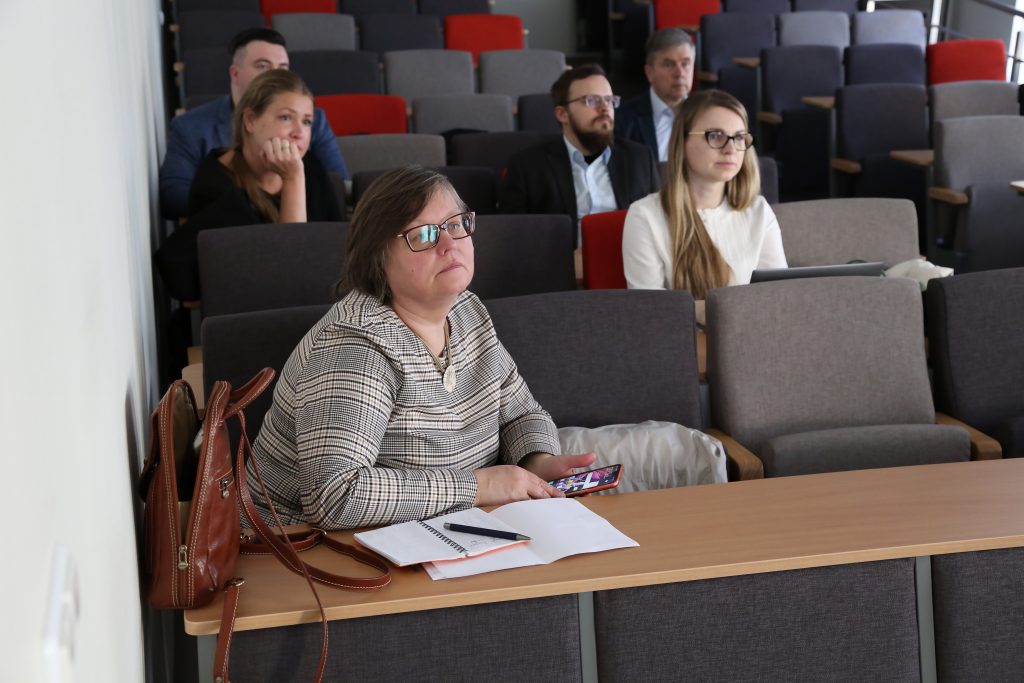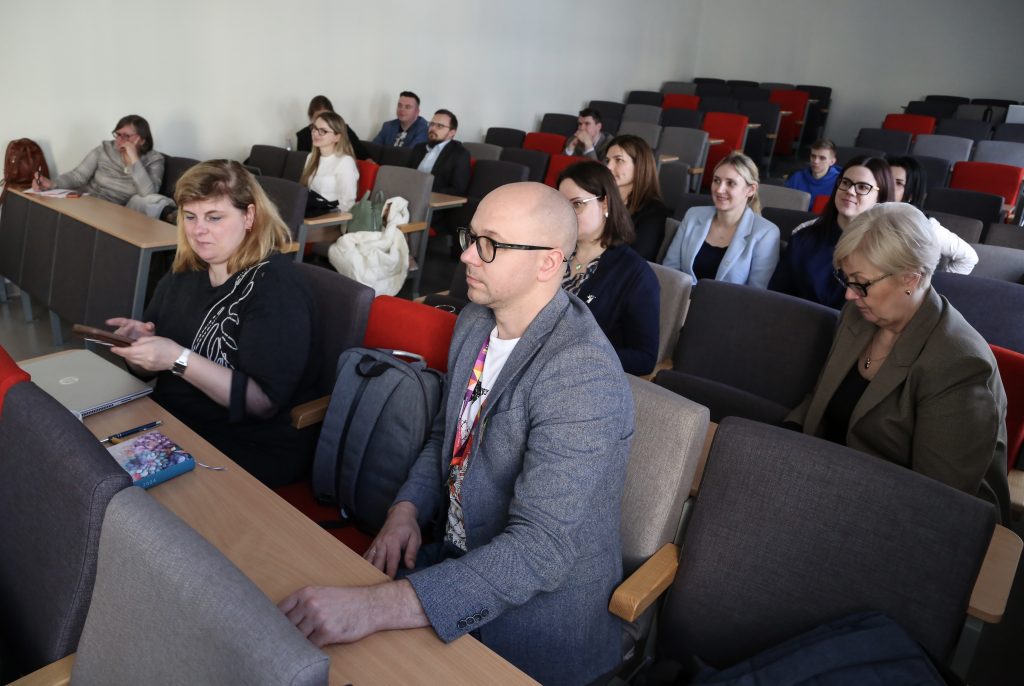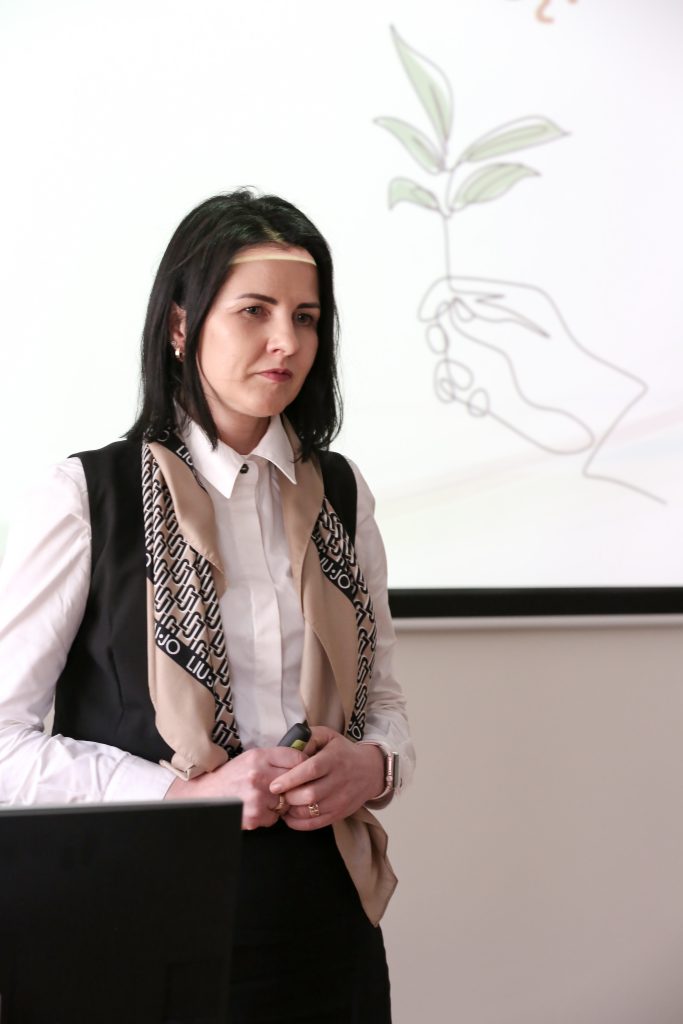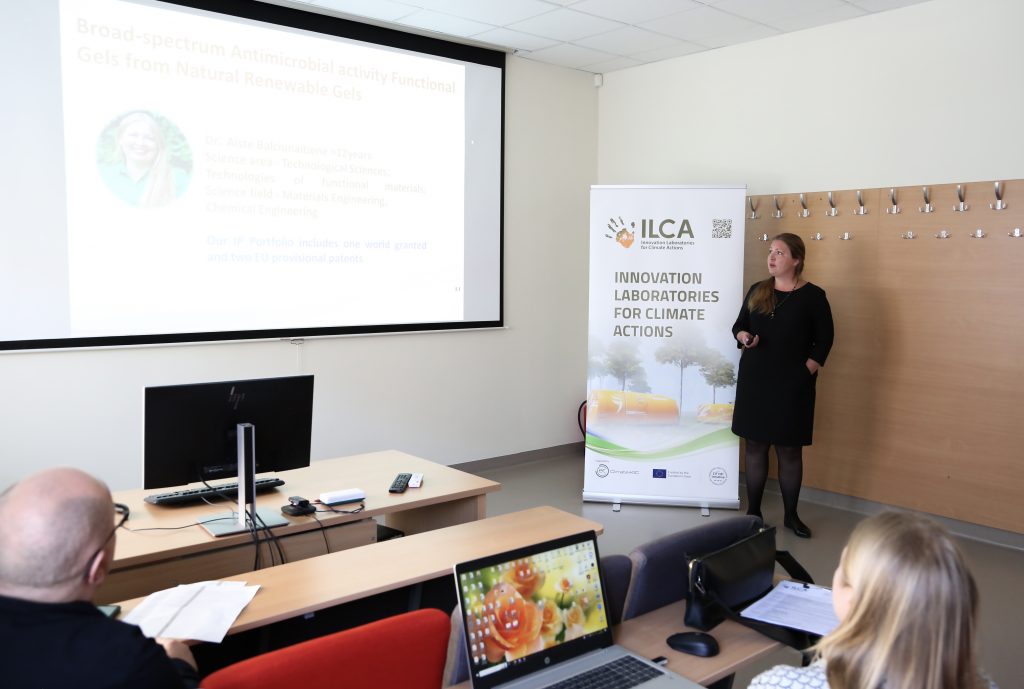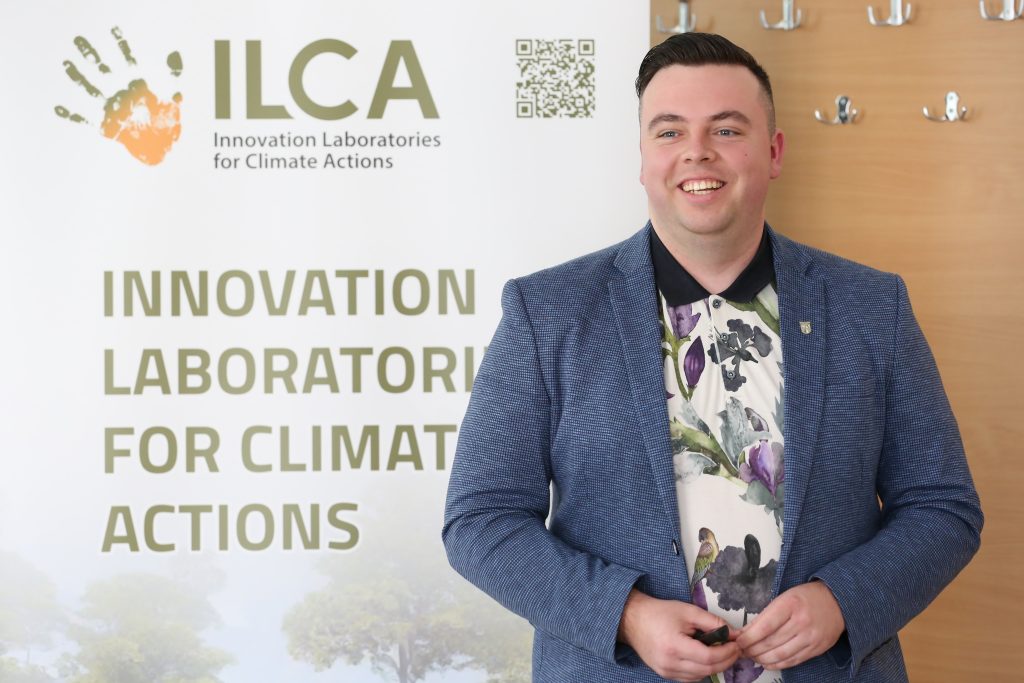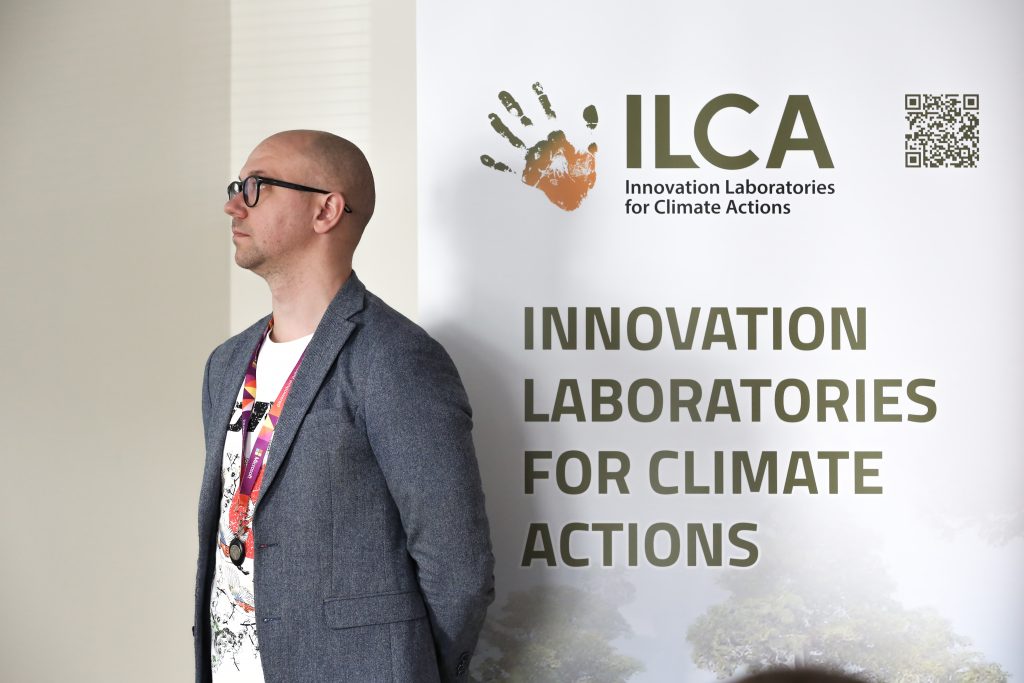On April 11, 2024, Vilnius College of Technologies and Design (VTDK), in collaboration with the Lithuanian Research Centre for Agriculture and Forestry (LAMMC), invited businesses committed to sustainable innovation to the event “Climate Innovation Lab Services for Business.” During the event, representatives of VTDK and LAMMC introduced the concept of the ILCA Innovation Lab for Climate Action and its activities to the gathered entrepreneurs. Additionally, scientists and researchers shared cutting-edge research and services provided to businesses in various fields, including design, business, civil engineering, transport engineering, mechanical engineering, agricultural, and forestry sciences.
One of the Laboratory’s objectives is to provide businesses with growth ambitions with information on how to develop their ideas and turn them into solutions for sustainable change. Indrė Žukauskė, Director of UAB Gooliver funding, introduced the business representatives to Eurostars, Eureka, EIC Accelerator, EIC Pathfinder, Horizon Europe, Interreg Baltic Sea Region, and EU Structural Funds’ advancement tools to attract funding for innovative ideas. Deimantė Vilčinskaitė, Export Development Manager of the Vilnius Chamber of Commerce, Industry and Crafts, presented Enterprise Europe Network—the largest business support network, which helps companies innovate, develop new products, services, and business models, transition to more sustainable business models, establish contacts with business partners worldwide, find EU funding instruments, and other sources of financing.
After the event, Joana Lapkovskaja, Head of International Relations and Project Management Department of the VTDK, one of the organizers, shared her impressions, welcoming the fact that the activities of the VTDK and the LAMMC Innovation Lab for Climate Action are involving more and more actors in the climate and social innovation ecosystem. “We can already be proud of the results of the Lab and the new business-science partnerships that have been created to achieve the main objective of the ILCA project—to strengthen human capital in climate innovation and entrepreneurship by addressing systemic problems,” says J. Lapkovskaja.
The following sustainable innovations are particularly successful results of business-science cooperation:
- A sustainable mobile office concept for the young and ambitious architectural firm MB “Madhauz” (https://madhauz.lt/);
- A prototype of an artificial intelligence (AI)-based emission measurement tool has been developed and tested for the research and experimental development (R&D) company MB “Miskantas”;
- Design of a branded style for a patented pillow against pressure sores for MB “Biofita,” a company engaged in research and experimental development (R&D) solutions for the pharmaceutical and medical industry (http://www.biofita.eu/);
- Involvement in the development of antimicrobial agents against antibiotic-resistant bacteria. More information: https://www.lammc.lt/lt/stazuociu-po-doktoranturos-studiju-skatinimo-projektai-finansuojami-is-valstybes-biudzeto-lesu/3913.
These partnerships’ results are an excellent example of how businesses can integrate sustainable practices into their operations, fostering innovation and solutions that meet not only economic but also ecological and social objectives.
